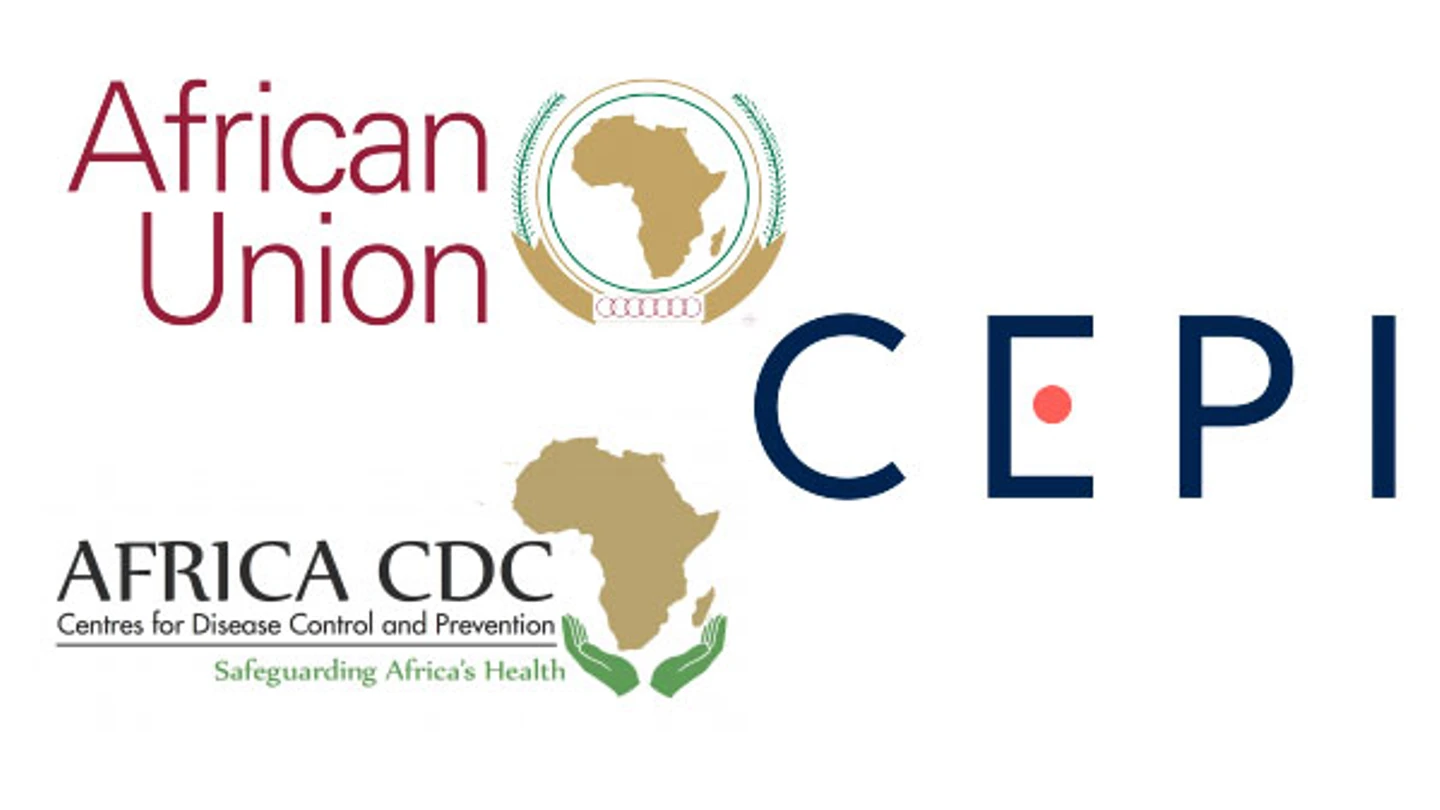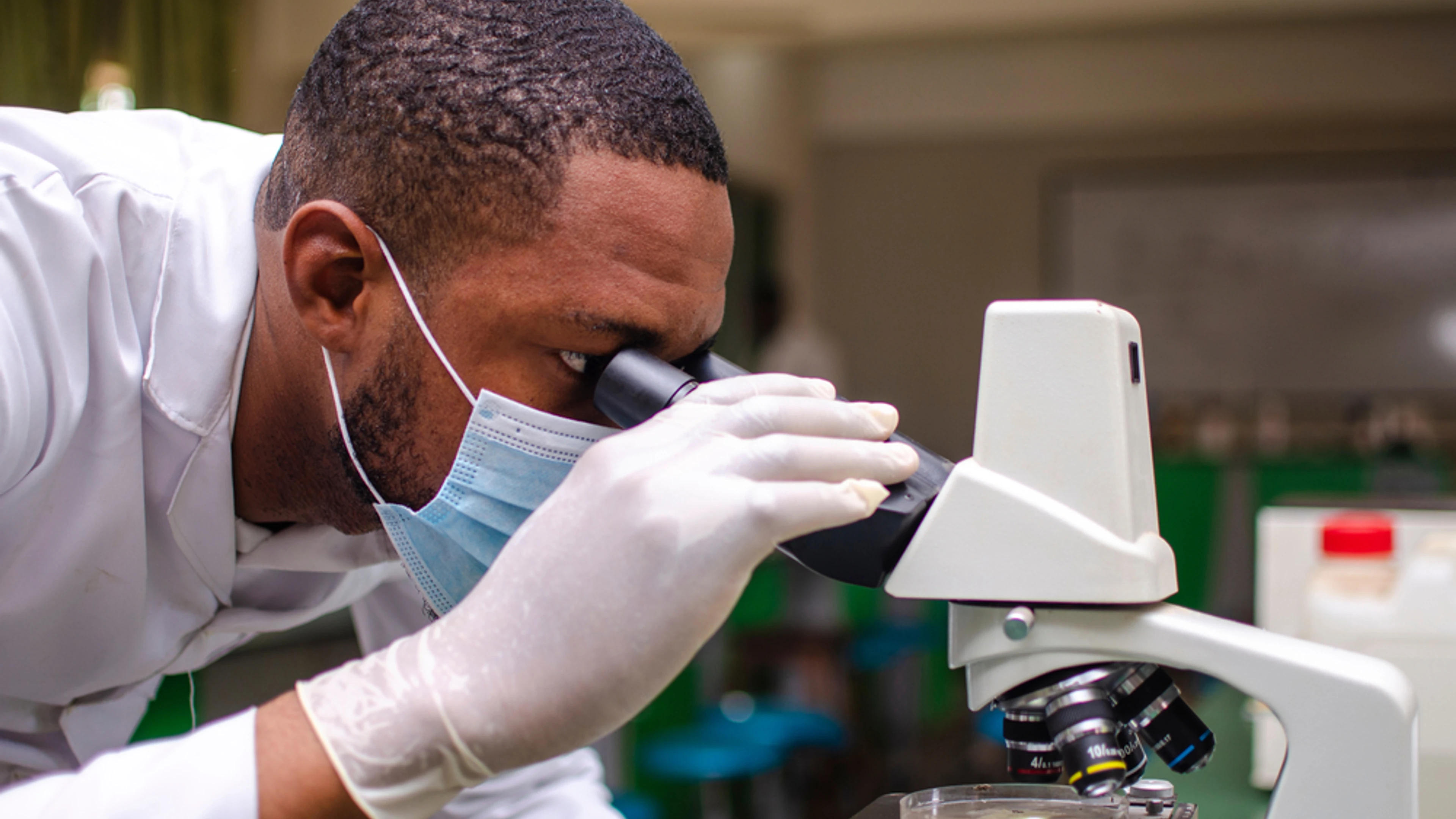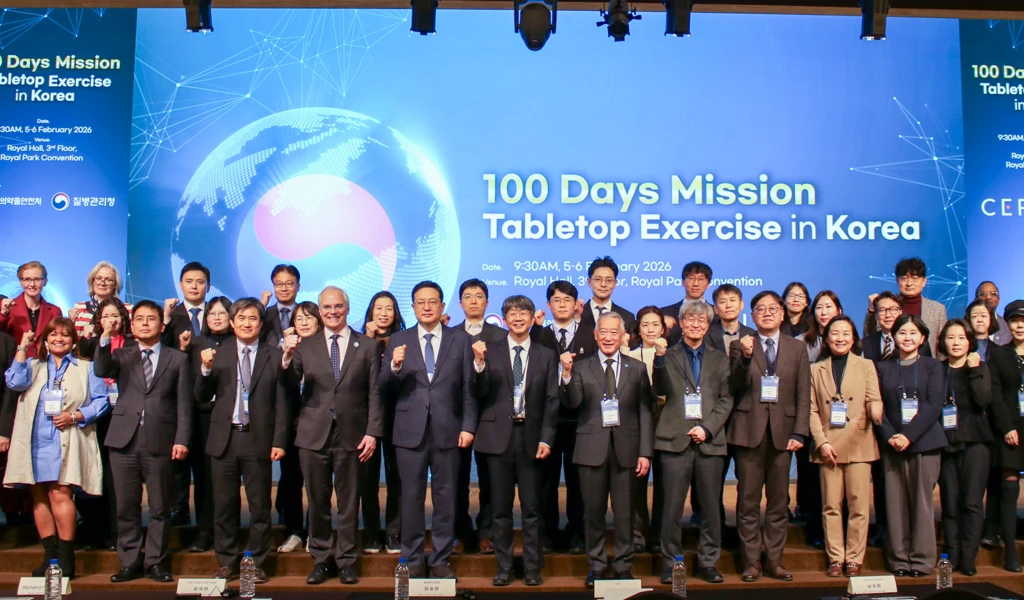
Oslo, Norway, and Addis Ababa, Ethiopia; April 13, 2021—The Coalition for Epidemic Preparedness Innovations (CEPI) and the African Union Commission have today announced the signing of an memorandum of understanding, which aims to strengthen ties between the organisations and the Africa CDC—a specialised institution of the African Union responsible for the prevention and control of diseases in Africa—to enhance vaccine R&D and manufacturing in Africa.
This collaboration forms a major part of CEPI's longer term epidemic and pandemic strategy, announced in March, 2021. As part of this strategy, CEPI aims to work with low-income and middle-income countries to develop the infrastructure and expertise to undertake the epidemiological and clinical studies needed to advance vaccine development, support technology transfer, and develop national and regional manufacturing capacity that will enable these countries to take full ownership of their national health security.
CEPI is delighted to strengthen our ties with the African Union and Africa CDC to build R&D and manufacturing capacity across Africa. Together we can strengthen Africa's capacity to prevent, detect, and respond to emerging and re-emerging infectious threats. By building regional resilience and strengthening health security on the continent, we can mitigate the disproportionate health and economic impacts that epidemic infectious diseases can have on populations in low and middle-income countries.
Scope of the collaboration
As part of the expanded relationship, CEPI, the African Union, the Africa CDC will work to:
> Strengthen pandemic and outbreak preparedness on the continent, building on key lessons from the COVID-19 and the procurement and distribution of vaccines through COVAX and African Vaccine Acquisition Task Team (AVATT)—established and endorsed by the AU Bureau of Heads of State and Government on 20th of August, 2020.
> Invest in vaccine R&D innovations to enable faster and easier production of vaccines in Africa
> Invest in capacity building and training to foster the development of local expertise needed to boost vaccine R&D and manufacturing in Africa
> Strengthen institutions that enhance enabling science need for vaccine development—for example, through investments in regional laboratory and research hubs across Africa
> Build partnerships that enable the sustainable expansion of vaccine manufacturing in Africa.
Trusted partnership will be critical in advancing the vaccine manufacturing agenda on the continent. The partnership with CEPI symbolizes cooperation and collaboration to help respond to infectious disease threats and ensure Africa's health security.
Boosting clinical trial capacity in Africa through the Africa CDC Consortium for COVID-19 Vaccine Clinical Trials (CONCVACT)
Only 2% of vaccine clinical trials take place in Africa, and most of those are conducted in just three countries. A global approach to clinical trials is needed to generate additional important data that cannot be obtained by only conducting studies in the same areas with the same demographics.
In response to COVID-19, CEPI has launched a number of initiatives to expand the number of vaccine studies undertaken in low-income and middle-income countries, building on the strong clinical trial capacity that already exists in many countries having dealt with past outbreaks of HIV, malaria, tuberculosis, and other infectious diseases. CEPI is also funding the development of the clinical trial infrastructure in regions that may currently be lacking the tools or training needed to make them potential research centres. Generation of this data on additional demographics and population settings will help fill in gaps in our clinical knowledge of vaccine efficacy while also providing the evidence needed to increase access to these life-saving tools.
Advancing vaccines against Lassa fever
No licenced vaccine for Lassa fever exists, despite the fact that this haemorrhagic fever affects 300,000 people and kills an estimated 5000 people a year in West Africa. CEPI identified significant gaps in epidemiological knowledge and understanding of disease transmission that would make evaluation of vaccine effectiveness challenging. In December, 2020, CEPI launched the largest epidemiological study of Lassa fever in December, 2020, despite the challenges posed by COVID-19. The ‘Enable' programme aims to increase knowledge about the disease and its prevalence. Findings from Enable will help inform the design of future late-stage Lassa vaccine trials. Up to 23,000 participants will be enrolled into studies in outbreak-prone areas—Benin, Guinea, Liberia, Nigeria, and Sierra Leone—with the first participants enrolled in Nigeria over the first week of December, 2020.
Early this year, a CEPI-funded vaccine programme initiated the first clinical trial of a Lassa Fever vaccine candidate to be conducted in West Africa, where the virus is endemic.
—ENDS—
Notes to Editors
Further background on the impact of CEPI's work in Africa
Ethiopia, first African Nation to Join CEPI
In February, 2020, Ethiopia became the first African nation to join CEPI. Commenting on the milestone, H.E. Dr. Lia Tadesse, State Minister, Ministry of Health, Federal Democratic Republic of Ethiopia, said: "Vaccines represent a vital tool for ensuring strong health security and defending against public health threats posed by emerging infectious diseases. Ethiopia is pleased to be able to support CEPI's mission to speed-up development of vaccines against these emerging threats and look forward to working together to strengthen Africa's capacity to prevent, detect, and respond to emerging and re-emerging infectious threats."
Combatting Ebola in DRC
CEPI established an international consortium of global health partners to launch a trial of an Ebola vaccine (Ad26.ZEBOV/MVA-BN-Filo; Johnson and Johnson) in the DRC in October, 2019. The distribution of this vaccine candidate, in a clinical-trial setting, allowed the collection of important data in a real-world setting on the administration of a vaccine that could be used to protect multiple vulnerable populations. To date, over 20,000 people have been vaccinated.
Developing a vaccine against Rift Valley Fever
Rift Valley Fever is an acute viral haemorrhagic disease caused by an RNA virus belonging to the Phlebovirus genus. The virus is transmitted by mosquitoes (Aedes, Culex, Anopheles, and Mansonia spp.) and blood feeding flies and most commonly affects domesticated animals (such as cattle, sheep, goats, and camels) but can also cause illness in people. The US CDC has classed Rift Valley Fever as a category A bioterrorism agent, given its potential to devastate large-scale agricultural economies and cause substantial social disruption. There is also a Rift Valley Fever endemic cycle and periods of climate-driven epidemics, particularly seen in East Africa. CEPI has two Rift Valley Fever vaccine candidates in its portfolio. Both are undergoing preclinical studies.
About CEPI
CEPI is an innovative partnership between public, private, philanthropic, and civil organisations, launched at Davos in 2017, to develop vaccines against future epidemics. Prior to COVID-19 CEPI's work focused on developing vaccines against Ebola virus, Lassa virus, Middle East Respiratory Syndrome coronavirus, Nipah virus, Rift Valley Fever virus and Chikungunya virus - it has over 20 vaccine candidates against these pathogens in development. CEPI has also invested in new platform technologies for rapid vaccine development against unknown pathogens (Disease X).
During the current pandemic, CEPI initiated multiple programmes to develop vaccines against SARS-CoV-2 and its variants with a focus on speed, scale and access. These programmes leverage the rapid response platforms developed by CEPI's partners prior to the emergence of COVID-19 as well as new collaborations. The aim is to advance clinical development of a diverse portfolio of safe and effective COVID-19 candidates and to enable fair allocation to these vaccines worldwide through COVAX.
CEPI's 5-year plan lays out a $3.5 billion roadmap to compress vaccine development timelines to 100 days, develop a universal vaccine against COVID-19 and other Betacoronaviruses, and create a "library" of vaccine candidates for use against known and unknown pathogens. The plan is available at endpandemics.cepi.net.
Follow our news page for the latest updates. Follow us on Twitter and LinkedIn.
About Africa CDC
The Africa Centres for Disease Control and Prevention (Africa CDC), is a specialized technical institution of the African Union that strengthens the capacity and capability of Africa's public health institutions as well as partnerships to detect and respond quickly and effectively to disease threats and outbreaks, based on data-driven interventions and programmes. Learn more at: www.africacdc.org
Media Contacts
CEPI
Email: [email protected]
Phone: +44 7387 055214
African Union
Email: [email protected]



.webp)